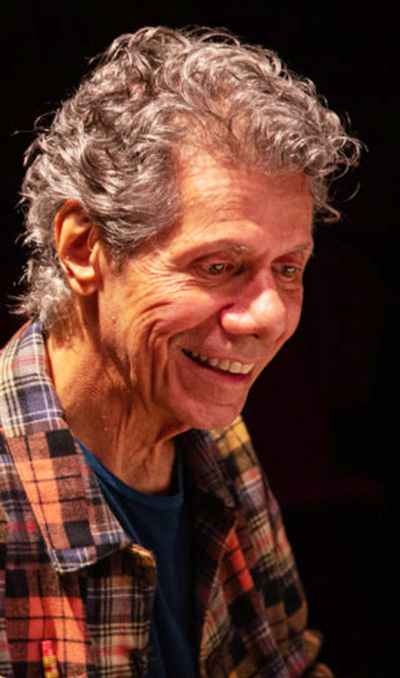“Trilogy”, published in 2014, was for many people a return from Chick Korea to more classic jazz. What does this “Trilogy 2” represent in your career?
Trilogy represents my wonderful long time association with Christian McBride and Brian Blade. Through the years we developed a great friendship and musical rapport that is unlike anything else I’ve done.
Throughout your career, every so often you have returned to the trio format, as a kind of parenthesis between different projects closer to the fusion of styles. Is the trio format a break, a challenge or an escape?
The trio format is classic. It’s the ultimate blend of three different sounding instruments that make the kind of rhythm melody and harmony that we love to create inspired by our teachers and mentors into the future of challenges that we give ourselves to find new ways to make music all with the classic trio.
You are a jazz giant, but so are Christian McBride and Brian Blade. What is more important for the music to flow, the talent of each one or the empathy between you?
It takes a desire to make music together. Then when the making of the music is so much fun, it’s very rewarding so we continue to create together.
In Trilogy 2 there are jazz standards, songs from the American songbook, versions of Monk or Davis and songs from you. Do you consider yourself a jazz classic yet?
I have never found it rewarding to analyze myself. I will leave that up to you and the public.
You rescue three of your classical songs: “La fiesta”, “500 miles high”
and “Now He Sings, Now He Sobs” from the 60s and 70s. From a distance, how do you see your beginnings in the world of music?
My real beginnings in music was the love and support I received from my father Armando and my mother Anna. They really encouraged me in my creative efforts and that meant the world to me.
There are two versions of Thelonious Monk – “Crepuscule With Nellie” and “Work” – which has always been for you a reference composer. Why exactly do you like in him as a musician?
He inspires me in so many ways. As a pianist, as a composer, as a band leader and as an artist who demonstrated the highest level of freedom of expression.
There is also a version of Miles Davis. How did your career changed after the collaboration with Miles Davis?
Miles was my teacher and mentor since I first heard him play in 1947 as a young man with Charlie Parker’s quintet. I followed his career through all of his solo records until I played for 2 1/2 years in his band from 68 to 71.
That was a great learning period for me and also helped me attract other great opportunities to make my own music.
Throughout your career, from jazz you have approached Latin music, rock, flamenco, classical music. Do you understand the debate about cultural appropriation, the right or not to play music that is not that of your cultural field?
Freedom to learn, freedom to express oneself, freedom to communicate. These are some of the basic freedoms that we all have.
What territories do you still have to explore?
I’d like to write a ballet someday.
The jazz audience used to follow the standing concerts, now they usually do it in comfortable seats. Is it a good change?
Each concert and each audience is completely different and unique onto itself.
Last year you regained your Latin character with the album and toured with The Spanish Hearth Band. What does Spain represent for your music?
I love the Spanish and Latin and African music cultures. They inspire me to make music and collaborate.
Now Latin music dominates the popular music charts. Do you think that the axis of music has definitely moved from Anglo-Saxon countries to Latin America?
I don’t follow those statistics so I really have no knowledge of that.

